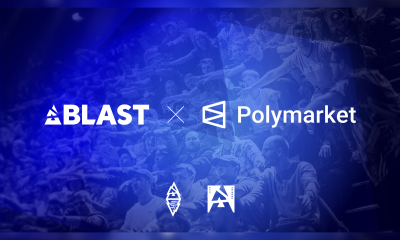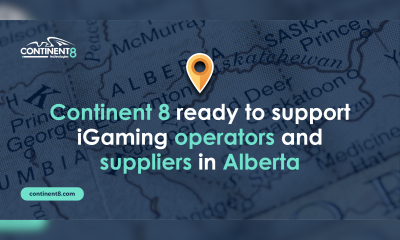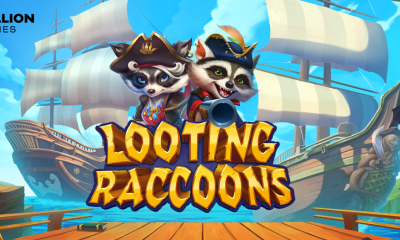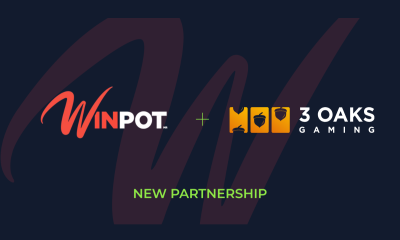Gaming Americas Q3 Meetup
Jekaterina Dubnicka Participates in Gaming Americas Q3 Meetup
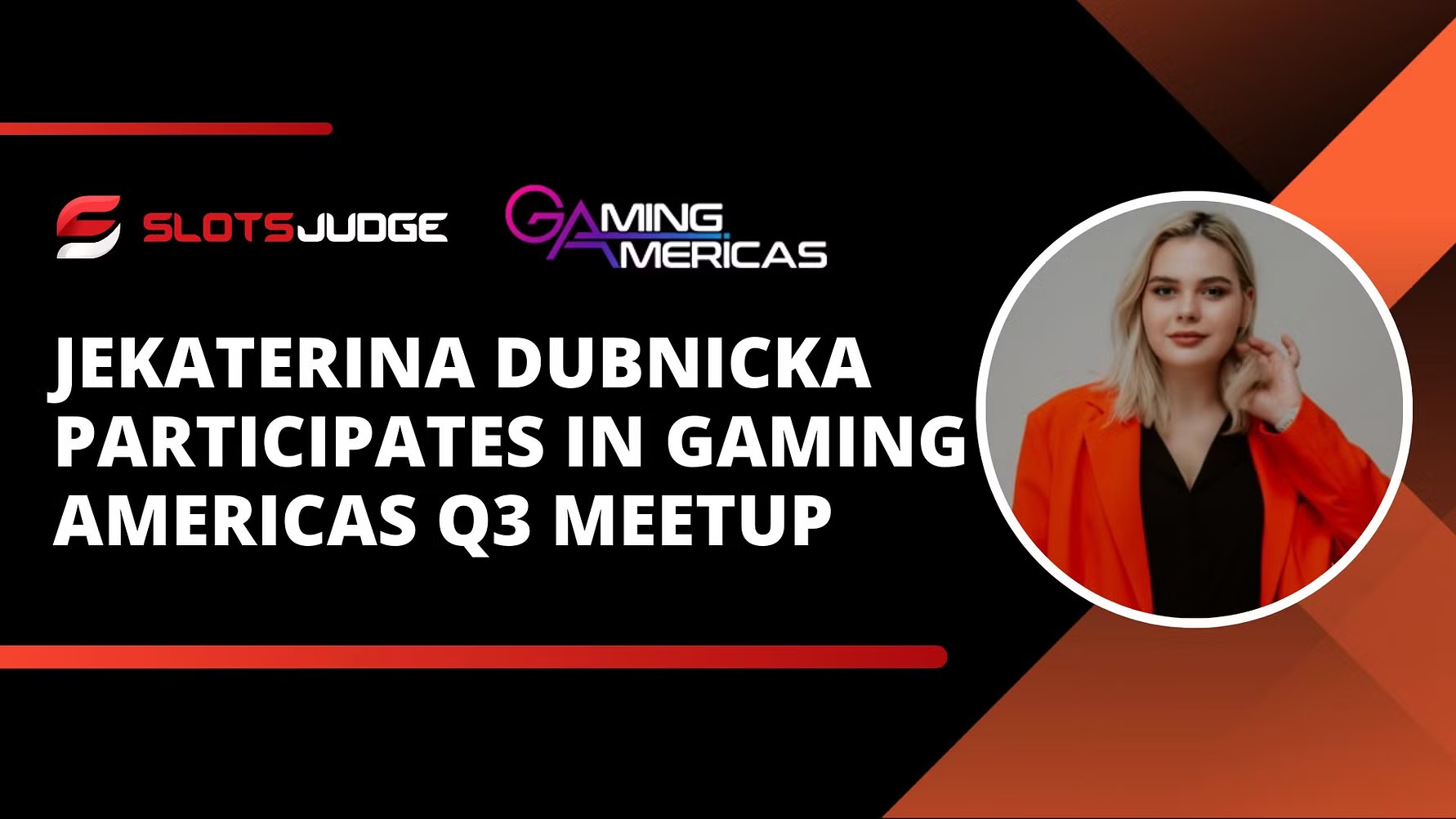
Jekaterina Dubnicka represented Slotsjudge at the Gaming Americas Q3 Meetup on the topic “Streamers – Speed and Entertainment vs Trust and Knowledge”, along with other key figures of the iGaming industry.
About the Event:
The quarterly Gaming Americas Q3 Meetups are unique virtual gatherings designed to update everyone engaged in Gaming on the latest innovations in the industry, spread unique ideas, and share knowledge and experience. Each meetup is joined by key personas of the iGaming sphere, including CEOs, developers, executives, business development managers, industry experts, and sometimes even governmental representatives and regulators.
The latest Meetup was dedicated to the role of streamers in iGaming and was set to break down such key points as the qualities of successful streamers and their role in the exposure of a brand, as well as choosing the right streamers for the promotion of products and services.
Key Insights from the Panel:
Yoni, the representative of Winpot Mx Casino, defined the main qualities of a successful streamer as authenticity and profound knowledge of the industry and the iGaming products they promote. Troy, the representative of SGG Media, focused on professional expertise, transparency, and consistency in streaming and posting updates to keep uninterrupted contact with the audience. Slotsjudge’s expert, Jekaterina Dubnicka explained the importance of the personal engagement of every streamer, as well as the entertaining atmosphere of the streams.
Discussion Topics:
The main highlights of the Meetup included maximizing the role of streamers for brand exposure, building trust with streamers, choosing the right streamers for brands, and engaging traditional bettors to reach a broader audience. “Brands should see streamers as influencers who represent their brand,” mentioned Jekaterina, dwelling on the importance of proper communication with the audience that would encourage potential clients to engage with the brand. Apart from the overall professionalism, the participants of the Meetup highlighted genuine interest and personal engagement in the gaming process as indispensable qualities of a professional streamer.
Conclusion:
As a representative of Slotsjudge, Jekaterina Dubnicka contributed to the latest Gaming Americas Q3 Meetup by sharing her professional insights into the role of streamers in the community and brand development. Together, the participants of the Meetup defined the importance of streamers for engaging with broad audiences and improving the visibility of iGaming brands on a global scale.
Bill Pascrell III Partner at Princeton Public Affairs Group
Gaming Americas Q3 Meetup: iGaming Streamers & the US Legislation Round-up

The last Gaming Americas Virtual Meetup for Q3 of 2024 delved deeply into one of the most popular trends in the iGaming industry: streamers. How is this trend evolving in the Americas, and what have companies learned from Europe’s momentum? What qualities should companies seek in a streamer, and how can they fully harness their influence?
In the Meetup’s second session, we were thrilled to welcome back our favorite industry legends: Bill Pascrell III, Partner at Princeton Public Affairs Group (PPAG); Jeremy Kleiman, Gaming Attorney and Member at Saiber LLC; and Martin Lycka, SVP of American Regulatory Affairs and Responsible Gambling at Entain. They shared the latest updates on US legislation and their perspectives on the current landscape.
Streamers’ Role in Gaming Industry Growth
Moderator and HIPTHER Co-founder, Zoltán Tűndik, welcomed experts Troy Paul, Co-Founder & CEO of SGG Media; Martyn Hannah, Founder & Managing Director at Comparasino; Yoni Sidi, CEO at Winpot Casino, and Jekaterina Dubnicka, Marketing & Communications Manager at Slotsjudge, and kicked things off with the considerations gaming companies need to make when partnering with streamers. The panel agreed that while there’s still room for growth and improvement, the use of streamers and micro-influencers has proven to be a valuable marketing strategy for the industry.
Selecting Influencers for Brand Engagement
“Microinfluencers” was the new word of the day for Zoltan, and apparently, a critical concept for the industry. Yoni and Troy highlighted the importance of engagement, authenticity, and expertise when selecting streamers or influencers for a brand. They stressed that a smaller, more authentic influencer who deeply understands the product and effectively engages their audience is often more valuable than a larger, less engaged influencer. They also emphasized the need for consistency and transparency in both content and deal structures. The team agreed that while well-known personalities might draw a larger initial audience, their long-term engagement and impact are less predictable.
Influencer Marketing in Gaming Industry
Jekaterina and Troy explored the impact of influencer marketing within the gaming industry with Jekaterina arguing that medium and micro-level influencers often drive better engagement and attract new audiences more effectively than their larger counterparts. Meanwhile, Troy highlighted the significance of budget considerations and tailoring influencer partnerships to the specific type of campaign.
Zoltan raised important concerns about the authenticity of social media followers, underscoring the need for greater transparency in influencer marketing practices. Adding a practical perspective, Yoni shared insights from his experience in tracking the return on investment (ROI) of marketing campaigns, using tools such as promo codes and engagement metrics to gauge effectiveness.
Choosing the Right Influencers and Streamers
Yoni stressed the importance of selecting the right influencer for a brand’s campaign, emphasizing qualities such as honesty, authenticity, and strong customer engagement. He also highlighted the benefits of treating influencers well and providing them with valuable insights into the business.
Troy added to the conversation by differentiating between public-facing feedback and constructive criticism. He emphasized the need for open and honest communication with influencers to foster effective partnerships.
Jekaterina shared her positive experiences with proactive streamers who actively work to enhance the brand’s image. The discussion also explored how brands can leverage streamers to connect with more traditional audiences, expanding their reach beyond digital platforms.
Streaming Platform Audiences and Engagement Strategies
Zoltan, Jekaterina, Yoni, and Troy examined the demographics of streaming platform audiences and discussed effective engagement strategies. Jekaterina highlighted that a mature audience, ranging from 30 to 60+ years old, is actively engaged with streaming content. She suggested targeting this demographic through platforms like Facebook and YouTube, as well as by creating discussion groups to foster interaction.
Yoni, on the other hand, emphasized his company’s efforts to attract a younger audience, specifically males aged 18 to 35. The team shared their personal insights and experiences with streaming and its diverse audience, wrapping up the discussion with a look forward to the next quarterly update from the US.
US Legislation Round-up Q3: Bill Pascrell’s Political Predictions
Our favorite dynamic trio, Bill Pascrell, III (BP3), Jeremy Kleiman, and Martin Lycka “entered the chat” and Bill got the ball rolling by sharing his views on the current political climate and its potential impact on the gaming industry. He expressed support for Joe Biden and Kamala Harris, citing their predictability and potential for more favorable policies for the Gaming industry. Bill also discussed the uncertainty surrounding the reinterpretation of the Wire Act and the potential impact of Congressional elections on a legislative fix. Bill also shared his predictions for the upcoming election, stating that a Trump White House, Republican Senate, and Democratic House would be the worst possible outcome, while a Democratic control of everything would be the second worst.
Legalizing Sports Betting in Texas
Bill and Martin discussed the prospects of legalizing sports betting in Texas. They noted that the state legislature only meets every two years, making any potential progress on this issue slow-moving. However, they believe that the upcoming legislative session, coupled with the support of influential figures like Jerry Jones and Dan Patrick, could bring the issue closer to a vote. They also highlighted the need for the gaming industry to improve its operations and messaging to have a better chance of success.
Addressing Gaming Industry Lobbying Challenges
Jeremy and Billl discussed the inefficiencies and challenges of the current lobbying approach for the gaming industry, particularly in California. They criticized the lack of coherent messaging and the waste of resources due to multiple stakeholders pursuing their own interests. Bill suggested a more unified approach, emphasizing the importance of respecting tribal sovereignty and educating each other. They both expressed pessimism about the future of online gaming and sports betting in California, citing past failures and the current lack of a coalition among tribes and operators. Martin agreed, noting the potential for offshore operators to benefit from California’s situation and the need for regulation to combat the black market. The panel also highlighted the importance of finding a solution that satisfies all parties involved.
Mobile Sports Betting and Gaming in New York
Jeremy, Bill, and Martin explored the ongoing issues surrounding mobile sports betting and gaming in New York. Bill provided an update on the situation, highlighting the efforts of Assemblyman Pretlow and Senator Addabbo in pushing for sports betting online and retail. He also expressed concerns about the potential cannibalization of the lottery by iGaming and the challenges faced by the budget due to these issues. Martin emphasized the need for clear communication and education for legislators regarding online sports betting and eye gaming. The conversation ended with an appreciation for the productive discussions and the anticipation of future meetings.
Watch the Gaming Americas Q3 Meetup recording on YouTube and HIPTHER TV!
Will your company elevate its marketing game with streamers? And do you agree with our experts’ views on the US legislation landscape? Take note and get ready for the Gaming Americas Q4 Virtual Meetup in November 2024!
Bill Pascrell
Gaming Americas Q3 Meetup: US Legislation Round-up
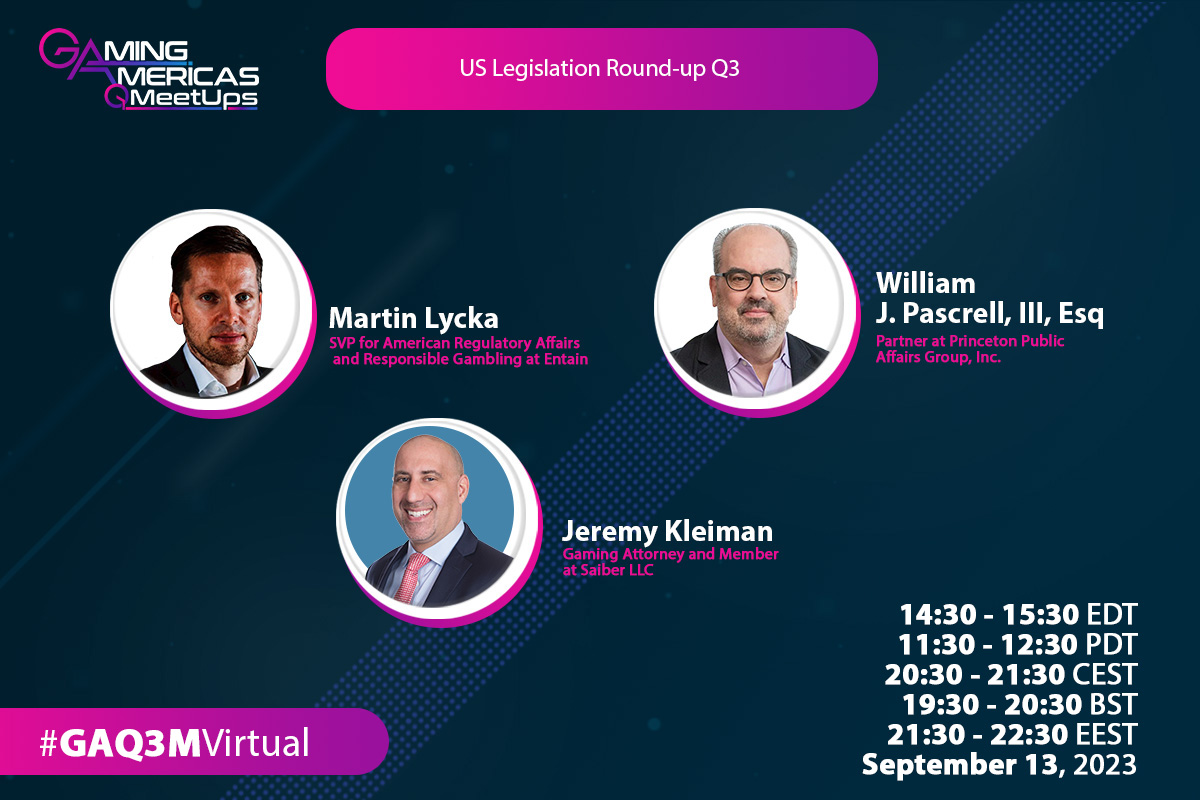
The Gaming Americas Quarterly Meetups by Hipther Agency are designed to keep you up-to-date with what is fresh in the North American and Latin American gambling industry.
The meetups feature several panel discussions per region and topics that are joined by key industry experts, CEOs, C-Level Executives, Business Development Managers, and sometimes government officials/regulators.
The Gaming Americas Q3 Virtual Meetup that took place on September 13 brought back the quarterly US Legislation Round-up with our favorite experts, Bill Pascrell, III (BP3), Partner at Princeton Public Affairs Group, Martin Lycka, SVP for American Regulatory Affairs and Responsible Gambling at Entain, and Jeremy Kleiman, Gaming Attorney and Member at Saiber LLC.
Gaming Americas Q3 Session 2: US Legislation Round-up
Speakers: Bill Pascrell, III (BP3) | Martin Lycka
Moderator: Jeremy Kleiman
Watch the Session on YouTube and HiptherTV!
In this edition of the US Legislation Round-up, moderator Jeremy Kleiman immediately delved into the major developments of the past quarter. He invited Bill Pascrell to kickstart the conversation with insights into Florida’s online sports betting launch, thanks to the Seminole-Hard Rock collaboration.
Bill shared his unique perspective, having represented Hard Rock International for the last 11 years. He revealed that while Hard Rock had initially launched betting, legal challenges forced a temporary shutdown. However, recent legal developments suggest that Hard Rock is poised to relaunch on September 19th. Bill credited this success to Jim Allen, Chairman of Hard Rock International and CEO of Seminole Gaming, as well as the entire Hard Rock Team and the Seminole Tribe.
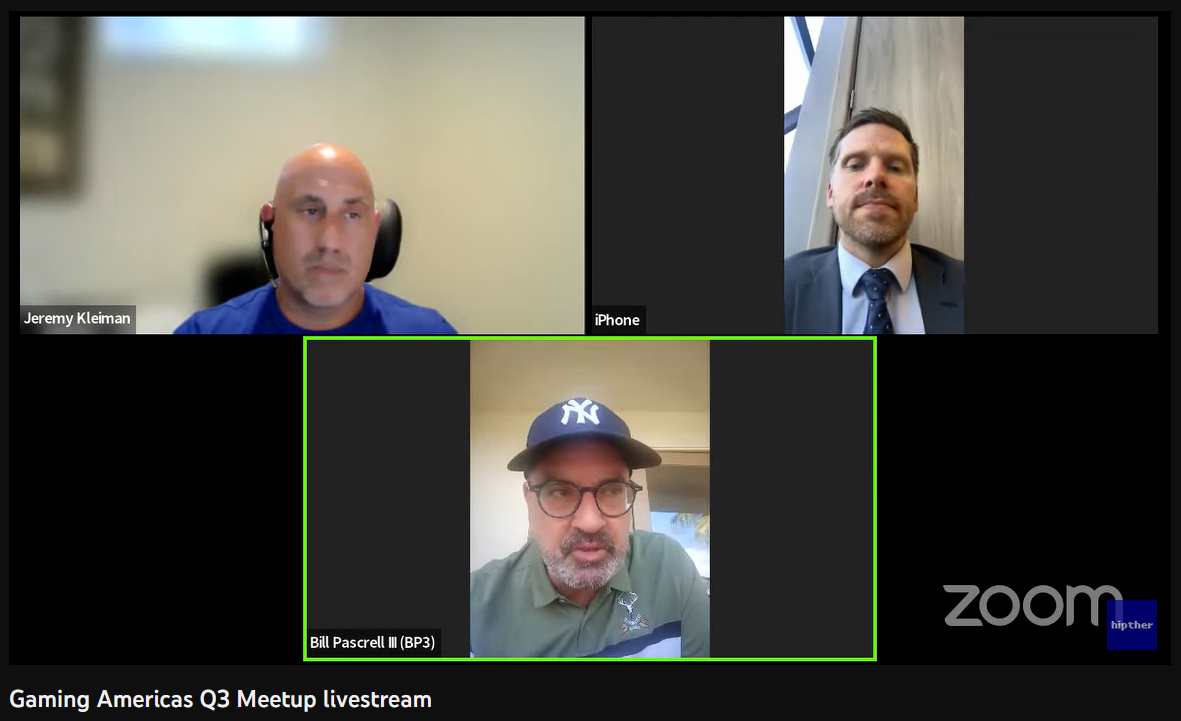
Bill also touched upon the legal complexities surrounding this case, especially regarding the Indian Gaming Act. He expressed excitement about Florida becoming the largest state in the nation to launch sports betting, emphasizing the enormous opportunities it presents.
Jeremy followed up by asking about the regulatory framework and potential collaborations with Hard Rock. Bill explained that opportunities for collaboration, both online and in retail, hinge on the Indian Gaming Act’s provisions. He also hinted at the possibility of ancillary services and additional partners.
Martin Lycka joined the conversation, emphasizing that Florida’s unique regulation is an example of the intricacies in US gambling and sports betting laws. He discussed the tax rates and restrictions in Florida and how four key states, including New York, California, and Texas, will shape the future of the US market.
The discussion then shifted to California, where Bill discussed the need for a ballot referendum due to the state’s complex political landscape and gaming entities.
Regarding Texas, Bill shared that it has no history of gaming, with many Texans crossing state borders for gambling. Regulatory attempts in the state have thus far failed, with potential regulation expected in the spring of 2025.
The conversation touched on the crucial role of professional sports teams in shaping gaming regulation. Bill emphasized that these teams will be license holders for venues and possess significant political influence.
Martin pointed out the cultural contrasts in Texas, a conservative state with popular sports teams eager to embrace sports betting. He also drew attention to New York’s high tax rate, which poses challenges for operators.
Jeremy shifted the discussion to responsible gaming, with Martin informing us that September is the Responsible Gambling Education month in the US, underscoring the importance of responsible gaming education throughout the year.
In summary, our panel of American gaming specialists provided a comprehensive session with valuable insights into US gambling legislation. They highlighted both the challenges and progress in key states, setting the stage for the future of the industry.
Watch the full US Legislation Round-up for Q3 on HiptherTV
Stay tuned for Session 3 of the Gaming Americas Q3 Meetup and the special focus on “AI Issues”!
Bill S-268
Gaming Americas Q3 Meetup: Gaming Insights with Segev LLP
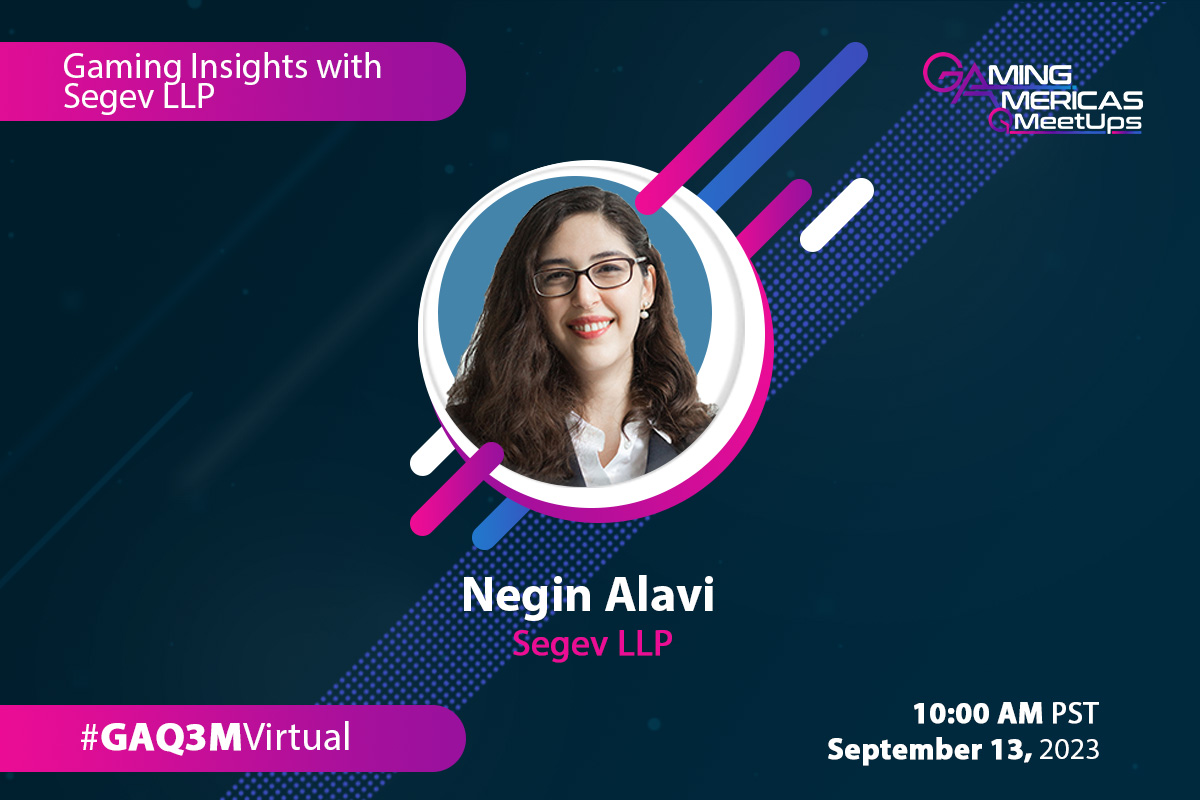
The Gaming Americas Quarterly Meetups by Hipther Agency are designed to keep you up-to-date with what is fresh in the North American and Latin American gambling industry.
The meetups feature several panel discussions per region and topics that are joined by key industry experts, CEOs, C-Level Executives, Business Development Managers, and sometimes government officials/regulators.
The Gaming Americas Q3 Virtual Meetup that took place on September 13 presented an in-depth exploration of US gambling legislation, featuring the latest edition of the ‘Gaming Insights with Segev LLP’ and the ‘US Legislation Round-up’, while the last session delved into the world of AI and the challenges it poses in the iGaming sector.
Session 1: ‘Gaming Insights with Segev LLP’
Speaker: Negin Alavi, lawyer at Segev LLP
Watch the Session on YouTube and HiptherTV!
Negin Alavi, a distinguished lawyer at Segev LLP, took the virtual stage during the ‘Gaming Insights with Segev LLP’ session, setting the tone for a captivating discussion on the evolving legal landscape of gaming and betting.
Kicking things off, Negin provided a brief overview of Segev LLP and its international operations spanning Canada, the United States, and China. This global presence underscores the firm’s commitment to addressing legal challenges and opportunities across borders. With this foundation in place, Negin delved into the heart of the matter: a comprehensive review of the current gaming and betting laws that shape the industry.
Intriguingly, Negin also explored the potential transformative effects of the proposed alterations outlined in Canadian Bill S-268. This bill, titled “An Act to Amend the Criminal Code and the Indian Act,” carries the promise of redefining the Canadian gaming and betting legal landscape.
Before delving into the legal intricacies, Negin took a moment to acknowledge the significance of her location. She presented her insights from Vancouver, situated on the unceded, ancestral, and traditional territory of the Musqueam Squamish and Tsleil-Waututh nations. This acknowledgment was twofold: a mark of respect for the indigenous peoples who steward these lands and a recognition that discussions about Canadian law, particularly those concerning indigenous peoples, are imbued with profound implications.
The current legal landscape in Canada revolves around the Criminal Code, the primary piece of legislation governing gaming and betting. Under this federal legislation, gaming and betting are generally illegal, with certain exceptions, notably lotteries. Negin emphasized that gaming, as defined by the Gambling Law, comprises three fundamental elements: consideration (the bet or wager of money), chance, and a prize. Even when games blend skill and chance, they are still categorized as games of chance in Canada.
Provinces possess the authority to enact gaming legislation within their borders, and even operate in partnership with offshore gaming operators, as seen in Ontario’s new iGaming regime. However, altering the Criminal Code, a federal statute, is beyond their unilateral reach. Despite this federal oversight, recent legal reforms have significantly shaped Canadian iGaming. Single-event sports betting became legal in August 2021, and Ontario launched its established iGaming Regime in April 2022.
Before these changes, Provinces were constrained to offering parlay betting, leaving offshore operators to fill the void in single-event (and live) betting. Now, with the legalization of single-event betting, any Province can oversee it. Ontario, being well-positioned, promptly launched its iGaming regime, now in competition with unregulated offshore offerings. This shift has allowed legally registered iGaming operators to provide their catalog to Ontario consumers, who spend nearly a billion CAD on online gambling. It’s a move toward embracing private operators rather than battling against them.
However, it’s essential to recognize the context: many Canadian companies were pioneers in the early days of iGaming, but due to regulatory limitations, they relocated offshore. These legal reforms may signal a return to Canada’s true potential in the iGaming sector.
The implications extend beyond economics. The Ontario Government stands to gain substantial tax revenues, which were once lost to unregulated operators. With these reforms in place, the iGaming industry in Canada is poised for better regulation, emphasizing consumer protection, responsible gaming, and job creation.
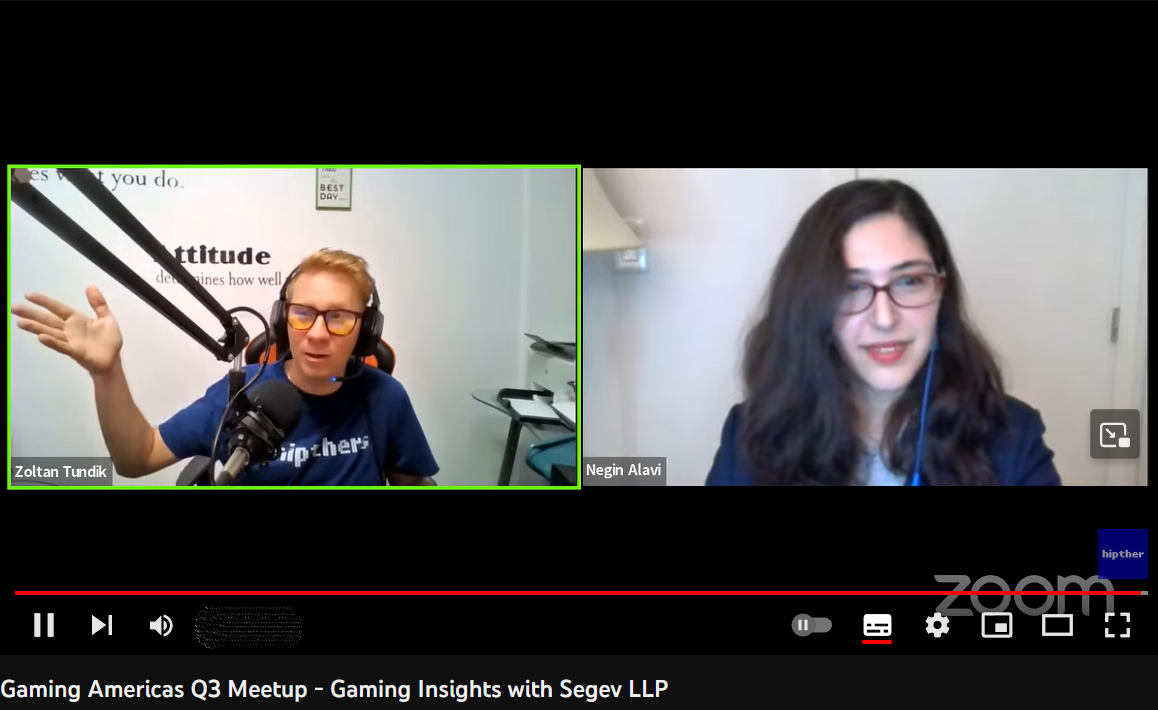
Turning our attention to the future, Negin provided a compelling overview of the impending changes in Canada’s legal landscape. At the forefront stands Bill S-268, poised to terminate provincial governments’ monopoly on lotteries.
To facilitate the discussion, Negin illuminated the legal distinction between indigenous peoples and First Nations. While indigenous peoples encompass all of Canada’s original peoples and their descendants, a First Nation is an officially recognized group under the Canadian Federal Government’s administrative unit, governed by the Indian Act. Importantly, Bill S-268 proposes to amend this very act.
The Indian Act, originally enacted in 1876, has a complex history marked by efforts to assimilate indigenous peoples and numerous discriminatory provisions. While some of these provisions have been removed, the act still wields a substantial influence over indigenous peoples’ lives today.
The proposed changes in Bill S-268 are ambitious and far-reaching. Its preamble is particularly noteworthy, as it outlines the legal foundation for these changes. Negin read the preamble aloud, emphasizing the recognition of indigenous and treaty rights, including their rights to regulate activities like gaming, betting, and lotteries on their lands.
This nuanced phrasing suggests that lawmakers are granting new rights to indigenous peoples while acknowledging that they already possess inherent treaty rights to oversee gaming, betting, and lotteries on their lands. The potential impact of this specific wording on Canada’s legal framework remains to be seen should Bill S-268 become law.
Moving on, Negin detailed the enforceable part of the bill, containing amendments that provide considerable flexibility to First Nations in managing lotteries. These amendments span charitable gaming licensing, fairs and exhibition gaming, amusement park lotteries, and the Terms & Conditions of licenses. In effect, these changes substantially narrow the scope of the current criminal code exceptions, representing a significant shift in Canada’s gaming laws. Importantly, it would mark the first time in Canadian gaming law that provincial governments would not need to be directly involved in for-profit gaming operations.
Summarizing, Negin pointed out the profound implications of this bill. If enacted, hundreds of First Nations could independently conduct and manage lotteries, each in accordance with their own laws. This change opens up a world of possibilities, not only in terms of revenue but also empowerment for indigenous peoples.
In conclusion, Bill S-268 stands as a transformative piece of legislation, promising to reshape the industry and empower indigenous communities. These discussions hold significance not just for the iGaming sector but for the broader Canadian legal landscape and its indigenous peoples.
As we eagerly await the unfolding of these legal developments, it’s clear that the gaming industry in North America is poised for significant changes, with potential benefits for all stakeholders.
Stay tuned for the next two insightful sessions of Gaming America Q3 Meetup, the US Legislation Round-up for Q3 and the hot AI issues in iGaming!
Watch the video of “Gaming Insights with Segev LLP” on YouTube & Hipther TV!
-

 BMM Innovation Group7 days ago
BMM Innovation Group7 days agoBMM Testlabs Secures Minas Gerais License, Expanding iGaming and Sports Betting Certification in Brazil
-

 Latest News7 days ago
Latest News7 days agoBMM TESTLABS GRANTED NEW LICENSE IN BRAZILIAN STATE OF MINAS GERAIS, EXPANDING ITS PRODUCT TESTING AND CERTIFICATION FOOTPRINT IN BRAZIL
-

 Brasil on Track5 days ago
Brasil on Track5 days agoODDSGATE LAUNCHES “BRASIL ON TRACK”, A STRATEGIC PLATFORM FOR NAVIGATING BRAZIL’S REGULATED IGAMING MARKET
-

 Latest News6 days ago
Latest News6 days agoMillion Games Unveils Looting Raccoons: A Charming Pirate Slot Packed with Features
-

 3 Oaks Gaming6 days ago
3 Oaks Gaming6 days agoStrategic partnership sees 3 Oaks Gaming expand its LatAm footprint with one of Mexico’s fastest-growing operators
-

 0005 days ago
0005 days agoCash Pig 2 Debuts from Booming Games with 15,000 Top Prize
-

 Compliance Updates6 days ago
Compliance Updates6 days agoRomanian National Gambling Authority Pushes for Urgent Overhaul of Self-exclusion Rules
-

 40 Glossy Hot5 days ago
40 Glossy Hot5 days agoAmusnet Releases “40 Glossy Hot”





